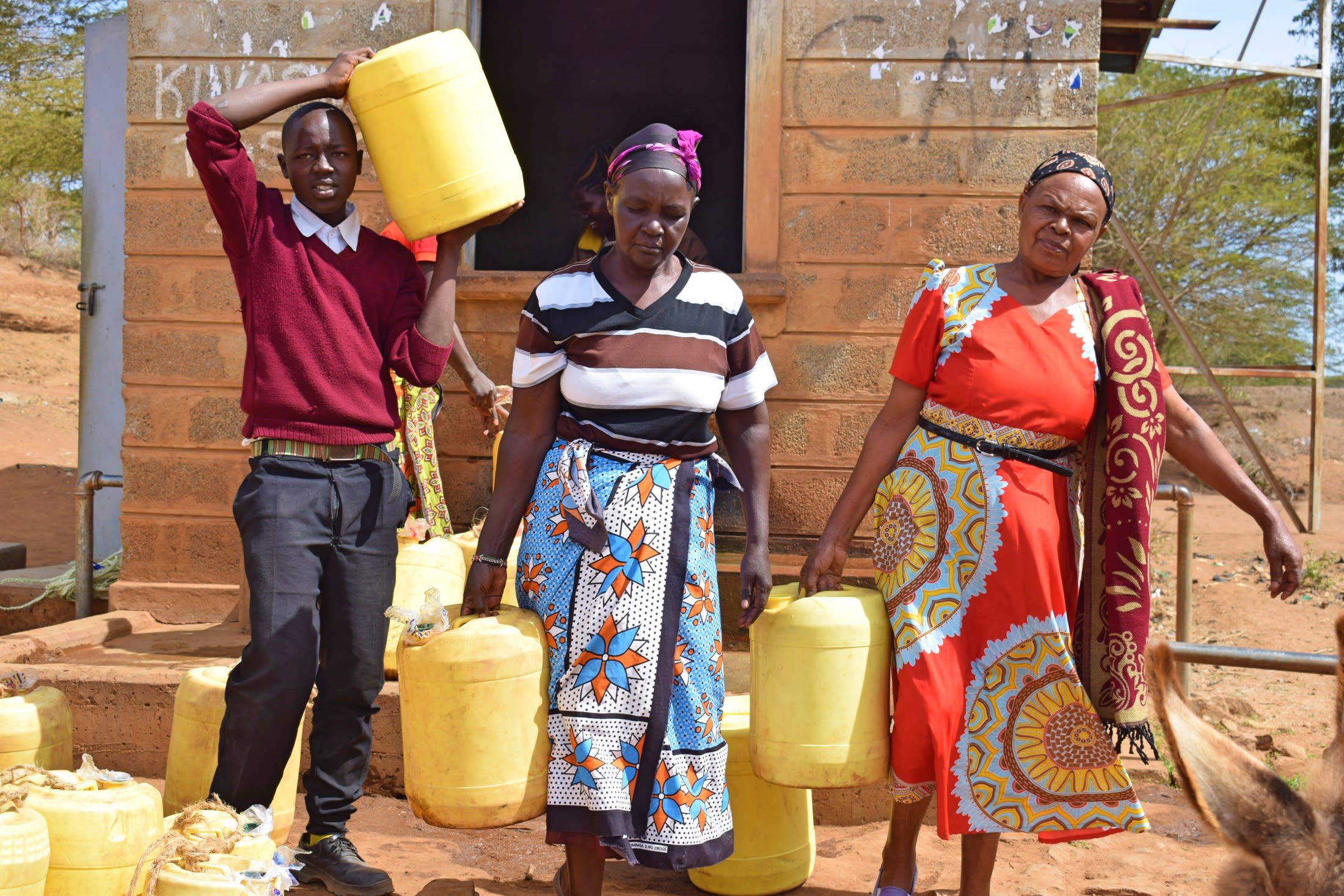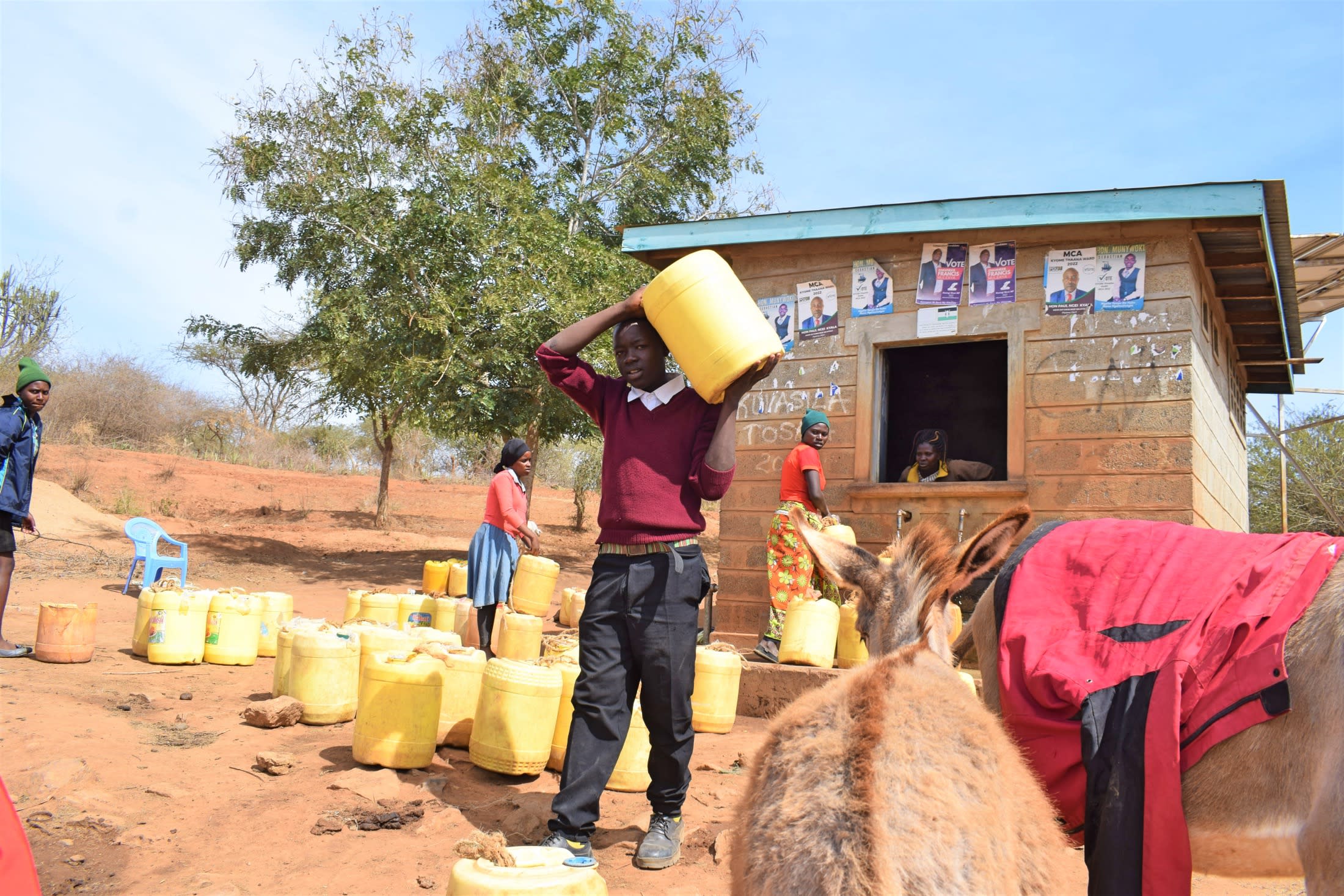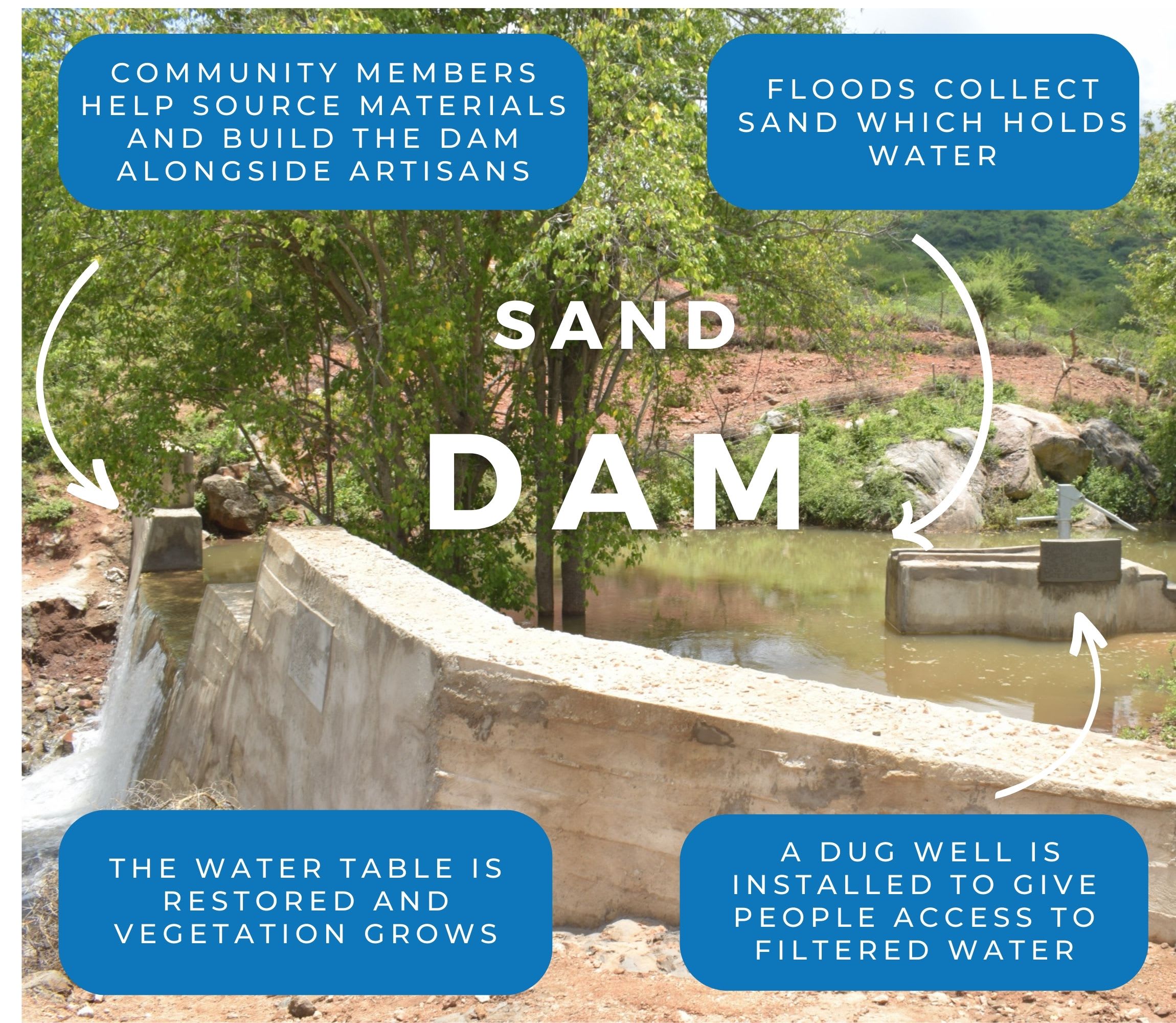In Kisirani and the surrounding communities, there is never enough water for everyone. Unfortunately, this means that all the water sources in the area are overtaxed and overcrowded. Over 2,500 people rely on the water kiosk that serves as this region's main water source, with 290 people in Kisirani alone.
If that were the only facet of the water crisis, it would be bad enough. But the kiosk is several kilometers away from the farthest homes. This means people walk for hours in the heat just to get water for their households every day, wait in line, and, on the worst days, they may find that there is no water at all. Some families can afford donkeys to carry multiple containers of water at one time. Others spend all that time and energy on just one 20-liter container of water.

"I have to make very huge decisions when it comes to water every day," said 63-year-old farmer Alice Mutua Gideon (on the right in the above photo). "I choose water over many other chores here at home. Although [water is] costly, it can't be ignored, because it's life. We can't do without water. Every day, I am busy looking for water. It eats up most of my time."
As you might imagine, spending so much time collecting and waiting for water has a significant impact on all areas of community members' lives. With most of their time eaten up, people can't work on their farms, which means their families don't have enough to eat. Farmers without crops to sell can't earn an income, so they can't buy essentials like school fees and medicine.
Students whose parents can afford for them to attend end up missing class to help their families, which is the case for 16-year-old Joseph M.

"Missing school to go and fetch water is what makes me hate my community," Joseph said. "Once you miss school, you are forced to report to your parents, and also you will have missed lessons which won't be repeated. This leads to poor and undesired performances in school. This practice is very rampant during dry seasons. We miss free time to play or even do some revision (studying) at home."
In a community with a water crisis, everyone must revolve their lives around water, which leaves them little time or energy to improve their situations. They can only focus on surviving from one day to the next. Installing water points closer to home will grant the community members of Kisirani opportunities like they've never had before.
What We Can Do:
Our main entry point into the community is the Self-Help Group, which comprises households working together to address water and food scarcity in their region. These members will be our hands and feet in constructing water projects and spreading the message of good hygiene and sanitation to everyone.
Sand Dam
After the community picked the ideal spot, our technical team went in and proved the viability by finding a good foundation of bedrock. Now, our engineers are busy drawing up the blueprints.
We are unified with this community to address the water shortage. As more sand dams are built, the environment will continue to transform. As the sand dams mature and build up more sand, the water tables will rise. Along with this sand dam, a hand-dug well will be installed to give community members an easy, safe way to access that water.
Building this sand dam and the well in this community will help bring clean water closer to the many people living here.
Training
These community members currently do their best to practice good hygiene and sanitation, but their severe lack of water has significantly hindered reaching their fullest potential.
We will hold hygiene and sanitation training sessions with the Self-Help Group and other community members to teach essential hygiene practices and daily habits to establish at the personal, household, and community level. This training will help to ensure that participants have the knowledge they need to make the most out of their new water point as soon as the water is flowing.
One of the most important topics we plan to cover is handling, storage, and water treatment. Having a clean water source will be extremely helpful, but it is useless if water gets contaminated when it is consumed. We will also emphasize the importance of handwashing.
The community and we firmly believe that all of these components will work together to improve living standards here, which will help to unlock the potential for these community members to live better, healthier lives.
We typically work with self-help groups for 3 to 5 years on multiple water projects. We will conduct follow-up visits and refresher training during this period and remain in contact with the group after all of the projects are completed to support their efforts to improve sanitation and hygiene.





 Sand Dam
Sand Dam
 Rehabilitation Project
Rehabilitation Project



























